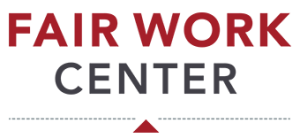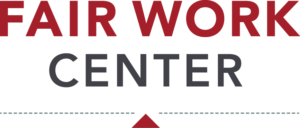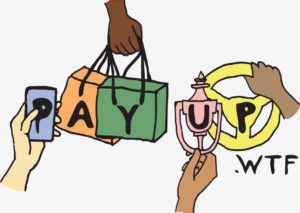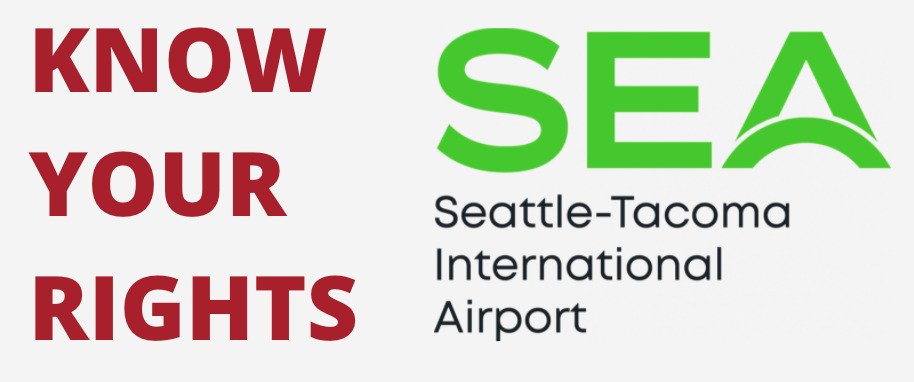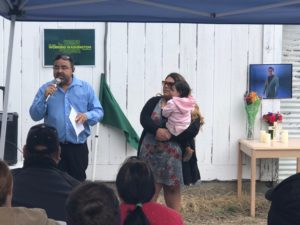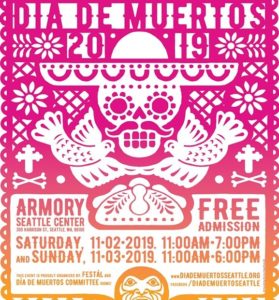More than one hundred workers at the Allan Bros fruit packing house walked out on strike in May after 14 co-workers tested positive for COVID-19 and the company didn’t take the appropriate steps to keep people safe. Their call for hazard pay and COVID safety protections quickly spread across the Yakima Valley, with more than 1000 workers joining picket lines at seven different packing houses.
Read what two Yakima workers had to say about the dangerous conditions that led them to walk off the job:
Angelina
“My coworkers and I went on strike due to the hazards we’re facing at work because of the coronavirus. We have very little safety right now inside the plant. We’re not given the proper equipment to protect ourselves or our families when we go home.
I don’t see how they’re protecting our health. I’m one of the many who was infected with the coronavirus. Some of my coworkers have two year olds, elderly people they take care of, and I wanted to be considerate of others and protect them as well. I let my immediate supervisors know once I knew I was sick with the virus. But they never told any of my coworkers that I was even sick, that they had been exposed. Nothing whatsoever, even though I gave management permission to use my name so that my coworkers could be made aware of the hazard they were put in.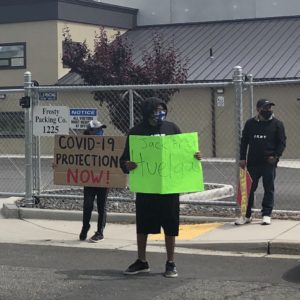
I have a coworker who was removed from her job area when she complained she was sick. Immediately they put someone else there to continue her job duties, without disinfecting the area or letting anybody else know that she might have the virus. The company does not pay you when you get sick, therefore there are people that will not report that they’re sick — and will come to work sick — because they know they’re not gonna get paid for the time they miss.
This is something that we endure every single day. Now that the virus has become hazardous to our health, we don’t get consideration from the company. Not even just to give workers a little heads up if we’ve been exposed, so we can go home and protect our family. We’re expected to just come to work — and if you get sick, you get sick.
When I started here working at Allan Bros. back in October, I was never really trained for the job. They had the understanding that I was just gonna start working and understand the process of how it’s done.
My job is stressful. Due to the rapid flow of the apples, at times we don’t get breaks to go to the restroom or to drink water, which is really hard on our health. There are people who have fainted while they’re packing because of the rapid work environment. There’s a particular machine that gives us a lot of back-ache and knee pain. This is a machine that’s run at such a fast pace that really it’s not friendly to humans. It’s friendly to productivity.
They expect you to grab three or four apples at a time. Sometimes, we can’t feel our arms, we can’t feel our fingers, we can’t feel our knees. If you don’t work at this fast pace, they call attention to you. You can get in trouble for not working fast enough.
We have tried to address these concerns with our supervisors. The machines are causing us long-term injuries, but when we report any injuries, we’re told that it’s arthritis. Some of my coworkers have had injuries for years, because of the rapid workflow that we endure during our ten-hour shifts.
I don’t see how they’re protecting us or our families. We don’t want to fear that our employer is going to retaliate against us because we speak out. When the visitors come in for inspections, they run the machines slower. When they leave, those machines run so fast that the apples go on the floor.
I am afraid to go back to Allan Brothers. I already got sick once. I don’t see them taking any necessary measures to protect us, and I don’t trust the safety measures they’ve taken so far. I hope that with us speaking up, I hope everybody understands where we’re coming from. It’s not just a money issue. It’s our health. It’s our family. It’s everybody’s well-being, not just ours.”
Felicitas
“I started working for Allan Bros. in 2006, so it’s been about 14 years, each one of them earning minimum pay. I earn $13.50 now. I’ve always earned the minimum wage the entire time I’ve worked here.
I went on strike because there’s a lot of discrimination at Allan Bros. If we don’t do this, it’ll never stop inside.
At Allan Brothers, they don’t want employees who have work restrictions. They told me that if you don’t have a paper that documents medical restrictions, they can put you to work where they want. And the instant you bring a note, they’ll send you home. If you’re sent home, they don’t pay you, and people have to pay their bills.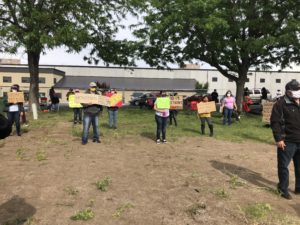
I injured my hip while at work back in May 2018, so I’ve been working injured for the past two years. They make me do all the work as though I’m in good health, even though I told my floor supervisor that I couldn’t complete this work. One time she almost made me cry. I told her that I couldn’t do packing, because it hurts so much to bend and turn. She just told me to “keep packing.”
This treatment is humiliation. She didn’t care about my situation. This doesn’t seem like fair treatment to me. It’s painful for me to work the bag machines. You have to quickly grab five bags, and keep turning and turning, which causes me even more pain. I push through the pain with pills and everything, but I have to continue working like this because it’s a necessity.
I don’t think that Allan Bros. has given supervisors training in how to treat other people. They need to give the floor supervisors classes in how to treat employees with respect. I think they should be taught how to ask, “Would you help me, please?” They don’t do that.
As workers, we all have rights and we should assert our rights, because if we don’t assert them ourselves, the employers aren’t going to respect them. We have to do it ourselves.
For me, I’ll stay on strike until they give us a good response. I’ll stay here until they tell us that they’ll give us a wage increase, until they say that they won’t retaliate against us, that they won’t humiliate us — all of that. And until there’s better safety measures. Everything they now have inside the plant, in terms of safety, they have because of all of us who went on strike. There weren’t masks, they didn’t have any kind of protection. The workers inside are already benefiting from the things that we’ve done.”
